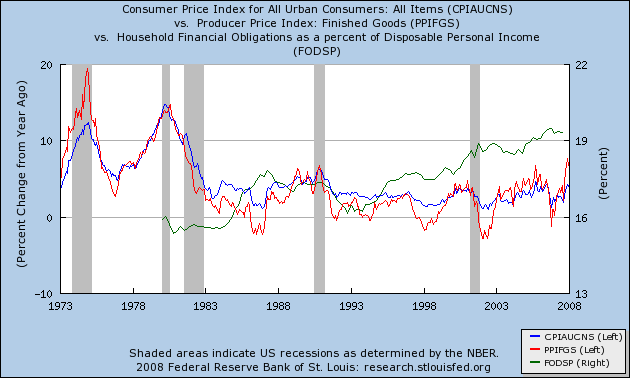With the release of today's January 2008 CPI showing a yearly reading of 4.1%, inflation hawks are certainly out in force in the blogosphere. While I certainly agree that the average American family has faced a vastly increased burden purchasing food, gasoline, and medical care, I do not think it is inflation itself that will be the problem going forward in 2008. Below I explain why.
Below is a graph showing how inflation tends to play out over economic cycles. The blue line is consumer inflation (cpi). The red line is producer inflation (ppi) which is the rate at which costs are increasing to producers. The green line is household debt.

Recent comments